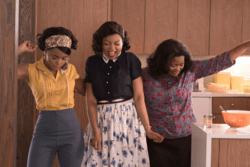Rama Burshtein’s “The Wedding Plan”
Movie poster for The Wedding Plan (2017) directed by Rama Burshtein.
I did not know what to expect from a romantic comedy about a woman intent on getting married in the ultra-Orthodox Jewish community, but The Wedding Plan by Rama Burshtein is one of the most feminist films I’ve ever seen.
Michal is a 32-year-old ultra-Orthodox Jewish woman in Israel. As she and her fiancé sit down to finalize the menu for their wedding, her fiancé reveals that he doesn’t love her and won’t marry her. Michal decides to go ahead with the wedding and trusts that twenty-two days will be more than enough time for her to find a groom. After many dates with unsuitable suitors, several heartfelt conversations with friends, and a pilgrimage to Ukraine, the wedding day comes.
The Hebrew title for the film is Laavor et Hakir, “Through the Wall.” When I saw it, it had become The Wedding Plan. Whatever the title, the film makes a powerful argument for how social and religious boundaries influence women’s lives. In the days before her wedding, Michal travels to Uman, Ukraine, to visit the grave of Rebbe Nachman (a leading figure in Hasidism). A wall divides the area near the tomb between men and women. While praying there, Michal is brought to tears and a voice from the men’s side asks her if she is okay. This is the ultimate meet-cute for her and Yoss, an Israeli pop star. (I won’t say anything more about what happens. See the movie!)
There are metaphorical walls, too, that set up the world of duality in which Michal lives. Men and women are strictly separated, and this separation creates space for rich relationships among women in the community. Michal lives with friends who, like her, are unmarried ultra-Orthodox women. They are typical rom-com best friends, talking about the men they date and singing together while driving. Jewish ritual observance creates new spaces that strengthen these female friendships. In a dream Michal has as her wedding draws closer, she goes to the mikveh, the ritual bath. In this women-only space, her friends are there to embrace her when she emerges. Their joy in religious observance and the opportunity ritual presents for women to come together both shine through in this moment.
The film does something more unexpected with the divide between the observant and non-observant within the Jewish world. Michal became religious as a young woman, and has not severed ties with her less-religious family. Her mother and sister appear throughout the film, and their lack of religious belief never edges towards disapproval. Some of the men who are set up with Michal and her friends are people who have become religious or who have converted to Judaism.
By representing such characters in their multitude and diversity, Burshtein complicates the easy divide between religious and secular. As a woman who did not grow up in the ultra-Orthodox world, but became observant as a young woman, Rama Burshtein herself is perfectly positioned to make films about women navigating these communities, and her work shows a commitment to telling stories about complicated individuals making choices within these circumstances.
Burshtein is not alone as an ultra-Orthodox woman filmmaker. Making movies as an ultra-Orthodox woman is “the most feminist thing,” she told an interviewer. “In my world, the art world is a women’s world.” Ultra-Orthodox women, with kids at home and households to run, fund their own films because no one else funds them. In general Israeli cinema, women have made considerable contributions and 10% of films in theaters between 2002 and 2010 were directed by female directors. To compare, only 7% of the top 250 films in the United States in 2016 were directed by women.
One particular scene in the film parallels the feminist element of Burshtein’s filmmaking. Michal has supported herself by running a petting zoo. At a child’s party, she holds her snake and asks the young girls who is brave enough to pet it. They respond with disgust, but there is one girl who timidly raises her hand. The older woman there shuts down this idea. This disapproval is enough to discourage the young girl, but Michal remains a model for fearlessness in the face of authority. Both Burshtein and Michal work in settings where Jewish ritual law may define what they do as women, but this law does not stop them from expressing themselves or from challenging others to do the same.
Burshtein portrays her world with sensitivity, humor, and honesty. She herself hasn’t embraced seeing her films as feminist, yet. “Sometimes I get a reporter who is shaking with anger at me,” Burshtein told a journalist when asked about feminists who have rejected her films. “When you are open to complications of emotion, then feminism, chauvinism and other big words fall apart.” It’s not just capturing and evoking feelings that makes her films feminist. She’s presenting stories with female protagonists who have the agency to make choices. The structures and boundaries that create this world of religious observance shape these women’s lives; they shouldn’t be incompatible with pursuing what these women want to do. Asserting one’s personhood within a system is a feminist act. At a time when women are making an embarrassingly small share of the movies we see in theaters, it’s all the more important to see films made by women, especially those that show the diversity of women’s worlds, their lived experience, and the art they produce. Burshtein may not fit into how we think of a “big word” like “feminism,” but her work makes this word bigger, expanding our notions of what feminist stories are and what they can be.








Can anyone tell me what's the name of the song played by yos in the club?? It's about a minute before 'Michal' asks his autograph and asks him of he would marry her.It's a song about the fact that he don't want his mother to leave him I think. He says something like "Boheima" what probably means "mother"?
Thanks and greetings.